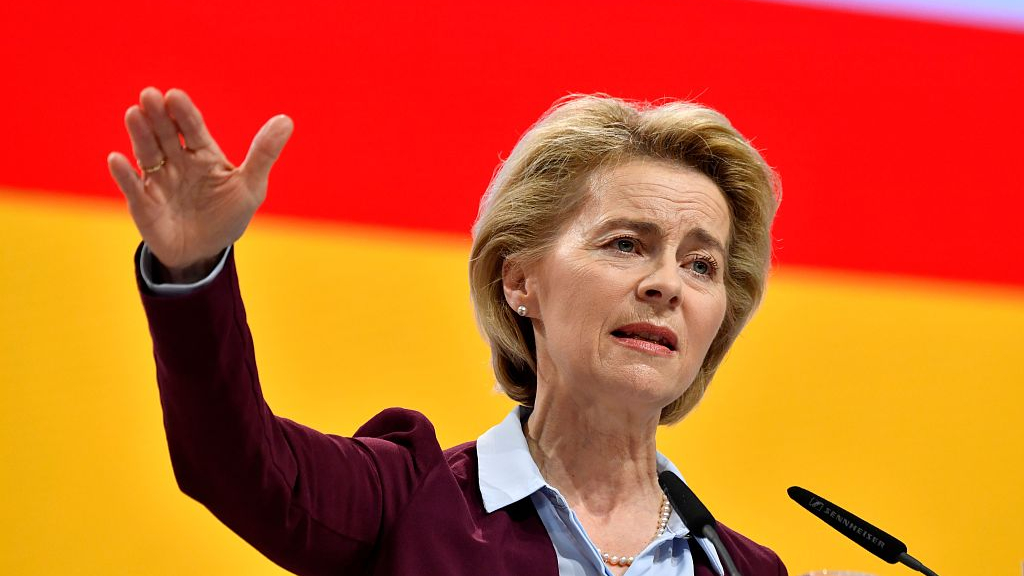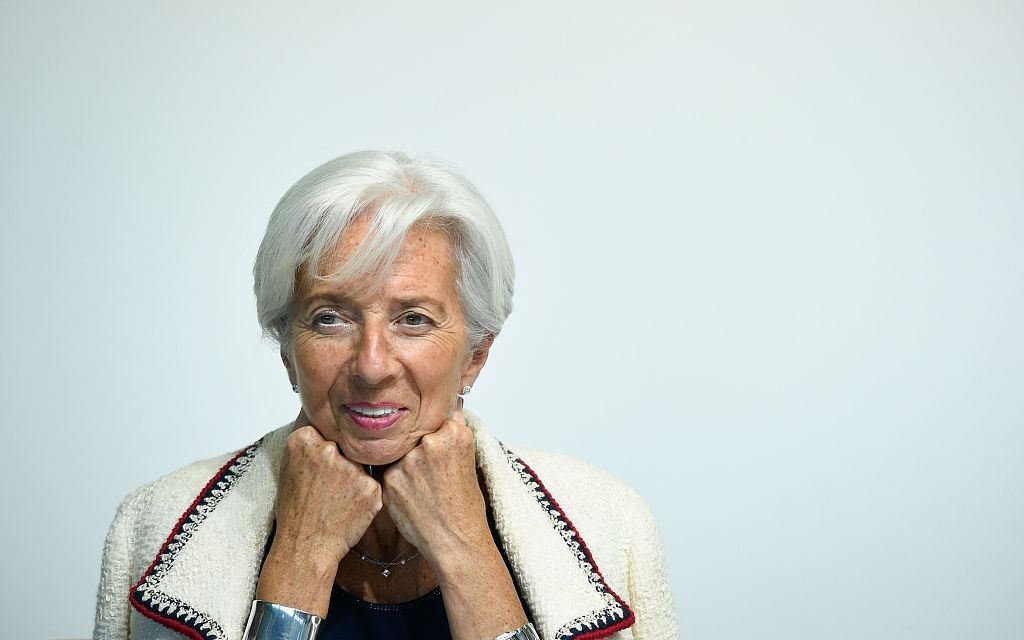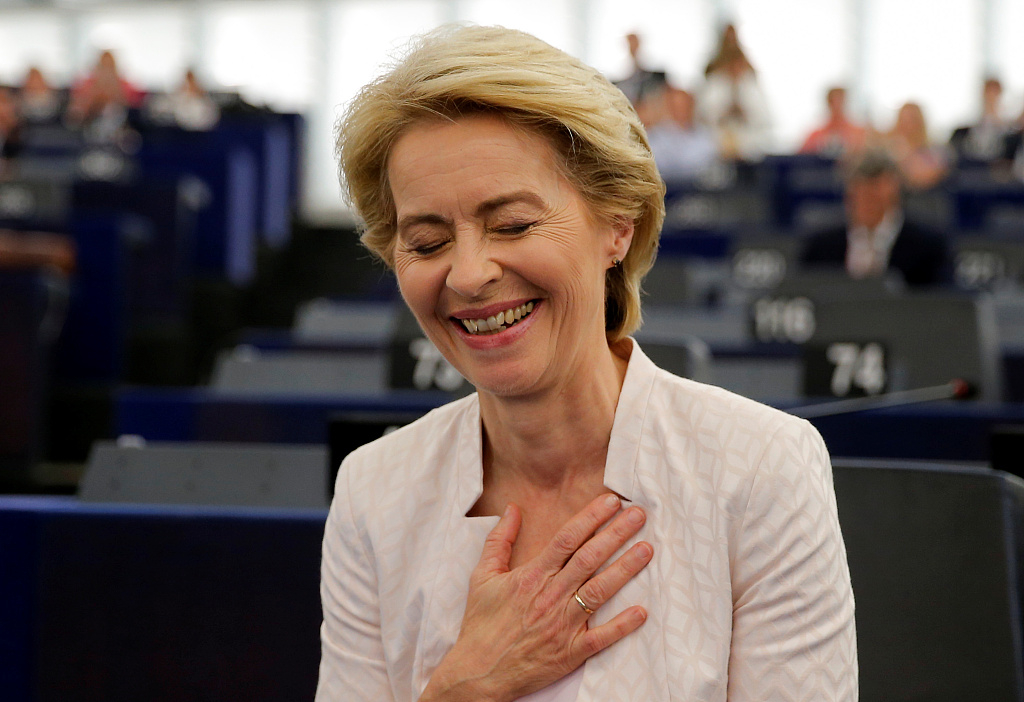

Editor's note: This article is based on an interview with Wang Yan, a senior specialist at the National Institute of Educational Sciences. The article reflects the expert's opinions, and not necessarily the views of CGTN.
For females around the world, nothing can be more exciting than the news of Christine Lagarde's nomination to lead the European Central Bank and Ursula von der Leyen's appointment as head of the European Commission. With an increasing number of females occupying top jobs at the global level, the influence of women is growing.
Ms. von der Leyen, the German defense minister, will become the European Commission's leading bureaucrat, attending international meetings and advancing EU interests in negotiations with the world major powers. Ms. Lagarde, who has resigned from the International Monetary Fund (IMF), will become the first-ever female president of the European Central Bank.

International Monetary Fund (IMF) managing director Christine Lagarde smiles during a press conference during a eurogroup meeting at EU headquarters in Luxembourg, June 13, 2019. /VCG Photo
"It is a sign of progress in terms of gender equality, especially for multilateral organizations or international organizations, and due to efforts over years, more and more women are gaining opportunities to own senior leadership roles in international organizations," said Wang Yan, a senior specialist at the National Institute of Educational Sciences.
It is well known that gender inequality has gone through a long history. For females, gender inequality can impact almost all aspects of their lives, from education to work, putting them at a disadvantageous situation when competing with males. And it is reported that among the IMF's 189 member countries, about 90 percent have at least one gender-based legal restriction, ranging from females' inheriting ability to borrowing limitations.
However, with more attention paid to gender equality and rising awareness of female power, the situation has improved a lot. In last year, the sweeping #MeToo movement has witnessed the shift of the global narrative on gender parity. And global initiatives aiming at reducing gender bias and boosting female development are also increasing in number.

Elected European Commission President Ursula von der Leyen reacts after a vote on her election at the European Parliament in Strasbourg, France, July 16, 2019. /VCG Photo
In fact, empowering women is now not just a social imperative: It's a cause that has the potential to transform and shape the global economy.
Based on figures released by Standard & Poors in January this year, if the labor force participation rate of women were equal to that of men, the U.S. economy would be 8.7 percent larger than it is today while the French economy would be 17 percent larger. And this number can be as much as 35 percent for some countries if they can close the gender gap in employment.
Economically, females can also lead the future. With the coming of the automation age, men's jobs, instead of women's jobs, are more likely to be influenced by automation as women's jobs tend to need more human interaction. And as women around the world are gaining higher education, more job opportunities and social benefits, they will contribute more to the global economy.
Take China as an example, women are the leading force for economic prosperity. With the development of e-commerce, women, accounting for 70 percent of online shoppers in China, have shown their shopping potential. "She-commerce" is becoming a trend in China, which is the world's single biggest consumer market.
Gender empowerment means "higher growth, a reduction in inequality, an improvement in the strength of the economy and a more diversified, export-focused country," Lagarde highlighted.
Gender equality is of high importance for the world's economy as well as females, Wang said. "All prejudices against women will hinder their productivity unless they can have as many equal opportunities as men."
(If you want to contribute and have specific expertise, please contact us at opinions@cgtn.com)

Copyright © 2018 CGTN. Beijing ICP prepared NO.16065310-3
Copyright © 2018 CGTN. Beijing ICP prepared NO.16065310-3